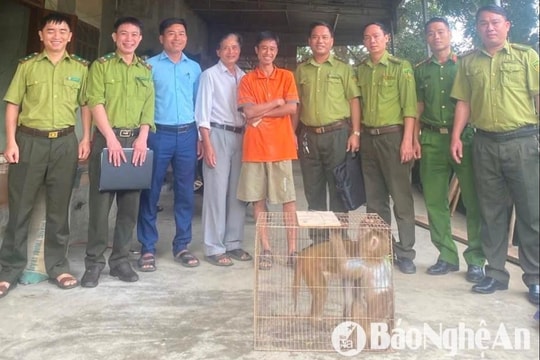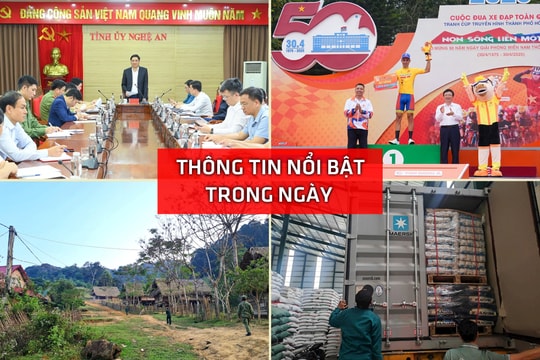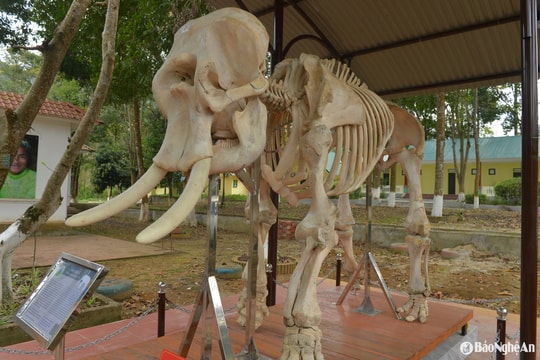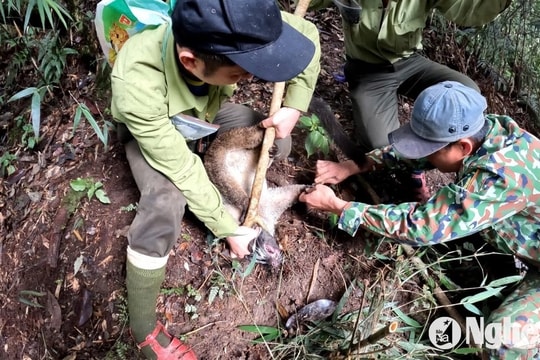Seven tigers involved in the wildlife trafficking case in Nghe An have found a new home.
(Baonghean.vn) - On the morning of March 22, Pu Mat National Park coordinated with the authorities of Nghe An province and the Center for Wildlife Conservation in Vietnam (SVW) to hold a handover ceremony and sign a contract to transfer 7 Indochinese tigers to Phong Nha - Ke Bang National Park (Quang Binh) for long-term care.
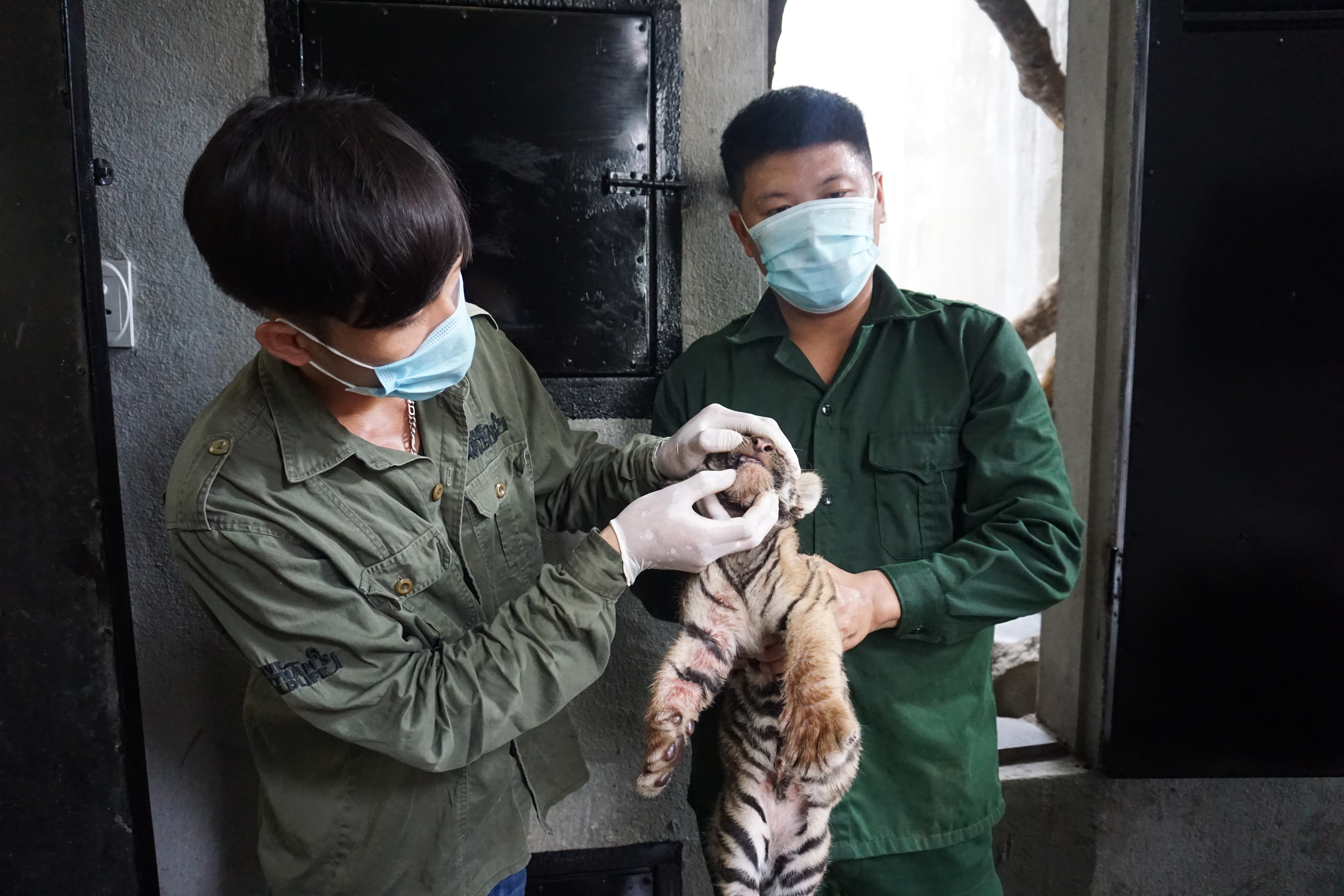 |
| Staff of the Wildlife Rescue Center - Pu Mat National Park check the health of newly brought tigers. Photo: VQGPM |
These tigers arrived at the Wildlife Rescue Area of Phong Nha - Ke Bang National Park in the afternoon of the same day.
Seven tiger cubs aged 1-1.5 months were evidence of the case of illegal wildlife trafficking and transportation that Pu Mat National Park, in coordination with SVW, received from Nghe An Provincial Police on August 1, 2021. At the time of handover, all the tigers were healthy, the smallest weighing 56kg and the largest weighing 64kg.
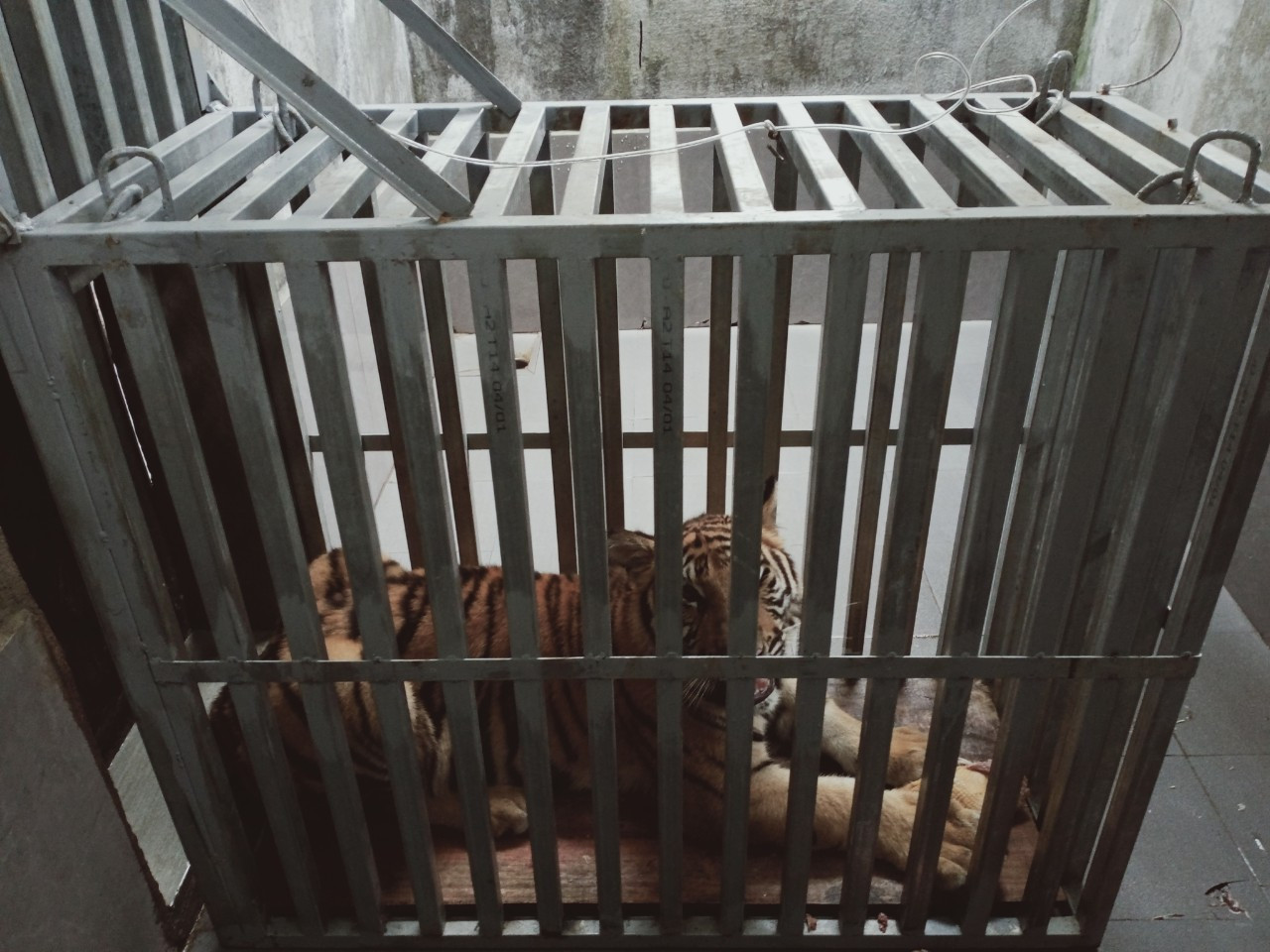 |
| At the time of handover, all tigers were healthy. Photo: VQGPM |
Previously, the caretakers had trained the tigers to get used to the transport cage by feeding them in a small cage in the cage. Mr. Dang Thanh Tuan, caretaker of the Wildlife Rescue Center - Pu Mat National Park said: "To prepare for the transfer, we have trained the tigers to get used to the transport cage since 2 months ago. The cage is 1.2m long, calculated to be suitable for easy placement in the cage. Every day, we put food in the corner of the cage, and train them to eat so that they do not feel afraid. The cage is also used to periodically check the health and weight of the tigers."
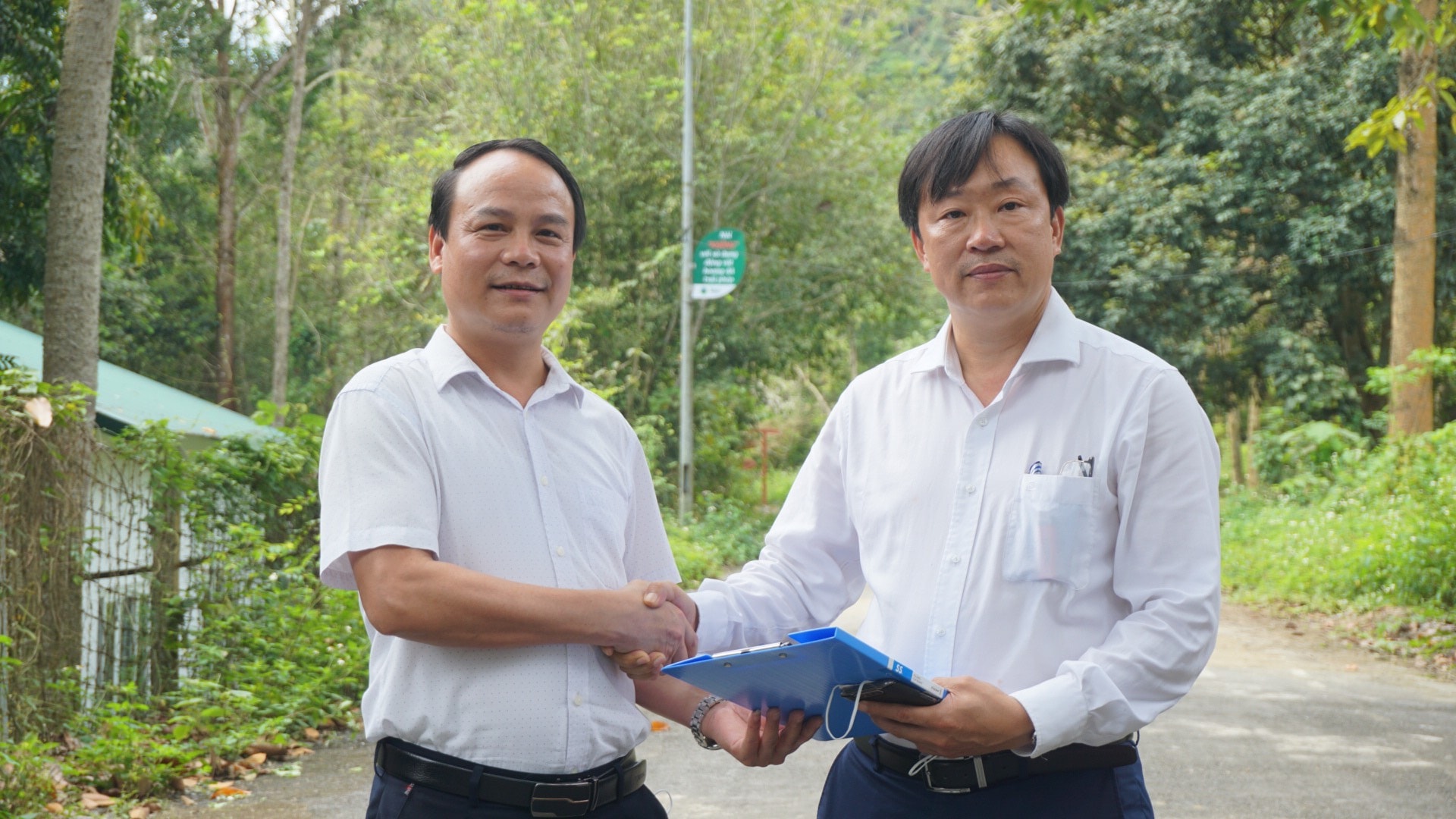 |
Mr. Tran Xuan Cuong - Director of Pu Mat National Park and Mr. Dinh Huy Tri - Deputy Director of Phong Nha - Ke Bang National Park exchanged the signing minutes at the handover ceremony. Photo: VQGPM |
To receive and care for these 7 tigers long-term, Phong Nha - Ke Bang National Park has prepared and completed the animal quarantine and quarantine facilities, as well as developed technical procedures for tiger rescue and food rations to ensure they are suitable for the ecological habits of each stage of the tiger's growth and are suitable for local conditions. The park also sent technical staff to Pu Mat National Park to learn about tiger raising experiences. The tigers will return... to serve the purpose of tourism and raising awareness.
Join hands to stop illegal wildlife trafficking
According to Mr. Nguyen Van Thai - Director of the Center for Wildlife Conservation in Vietnam (SVW): These tigers cannot be released into the wild. Tigers in captivity do not have or have lost the ability to hunt and survive in the wild, leading to their chances of survival when released into the wild being almost zero. Transferring these 7 tigers to licensed units with good care conditions and facilities to ensure animal welfare is the best solution. In addition to providing a better life for them, opening the doors to visitors is a financial resource to support care, as well as raising public awareness about wildlife conservation.
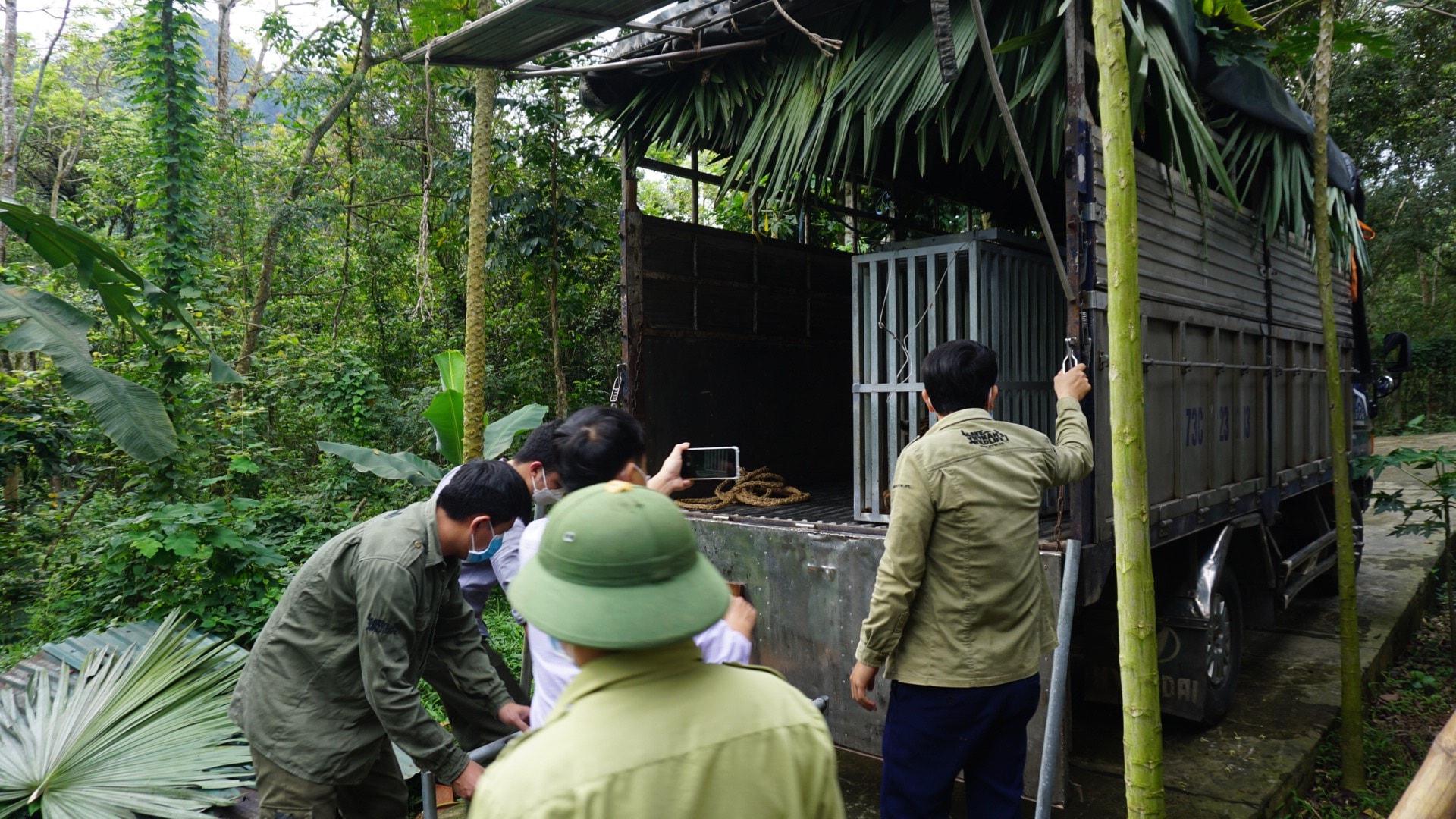 |
| Loading tigers onto vehicles to transport to Phong Nha - Ke Bang National Park. Photo: VQGPM |
Mr. Tran Xuan Cuong - Director of Pu Mat National Park said: Despite the difficulties in housing conditions, the Park still tried to adopt 7 tigers to ensure the best welfare for care. However, after a period of raising, the tigers developed well and gained weight quickly, so the conditions at Pu Mat National Park could not ensure long-term care. The Park asked for the opinion of Nghe An Provincial People's Committee to transfer them to Phong Nha - Ke Bang National Park.
The cost of caring for 7 tigers over the past 7 months is nearly 900 million VND (including food, human resources, and veterinary costs). The cost is 100% supported by the Wildlife Conservation Center in Vietnam.
The Indochinese tiger is listed as a critically endangered species. Illegal hunting, trade, and habitat loss are the main factors pushing this species to the brink of extinction. The last time Vietnam recorded an Indochinese tiger in the wild was more than 20 years ago.

.jpg)
.jpg)
.jpg)
